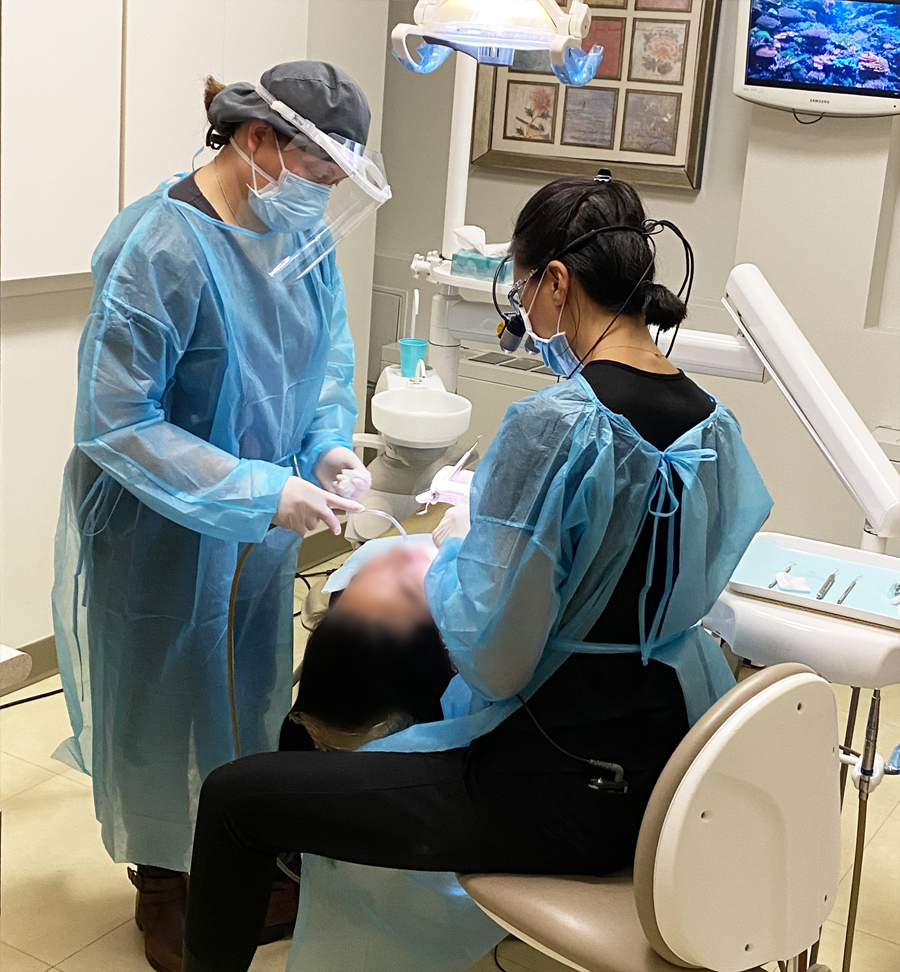Experience Comprehensive Dental Care with a Relied On Eugene Dentist
Experience Comprehensive Dental Care with a Relied On Eugene Dentist
Blog Article
An Overview to Usual Dental Problems That Call for a Dental practitioner's Care
Toothaches, for instance, can be symptomatic of severe concerns such as cavities, fractured teeth, or abscesses, each requiring specific interventions like fillings or root canals. Impacted wisdom teeth and jaw conditions can present considerable discomfort and issues.
Toothaches
Toothaches are an usual oral problem that can vary from mild pain to extreme discomfort, frequently suggesting an underlying concern that calls for specialist focus. This pain can stem from a selection of resources, consisting of dental cavities, split or fractured teeth, and dental abscesses. Each of these conditions positions considerable dangers if left unattended, possibly leading to extra severe problems.
Dental cavities, additionally known as decays, are triggered by the buildup of plaque that deteriorates tooth enamel, leading to holes or pits in the impacted teeth. Abscesses are uncomfortable infections at the root of a tooth or in between a tooth and the periodontal, generally resulting from severe degeneration or unattended cavities.
Reliable treatment of toothaches includes addressing the origin cause. This may consist of fillings for tooth cavities, crowns for broken teeth, or origin canals and antibiotics for abscesses. Very early intervention by an oral professional can avoid further wear and tear and reduce discomfort, guaranteeing ideal dental health.
Gum Condition

The main source of gum condition is bacterial plaque, a sticky, anemic film that continuously creates on teeth. Poor dental hygiene, smoking cigarettes, hereditary predisposition, and certain clinical conditions, such as diabetes mellitus, can worsen the danger of establishing periodontal condition. Normal oral check-ups are crucial for early detection and monitoring of this problem.
Treatment for gum disease varies from expert oral cleaning and scaling to even more innovative procedures like origin planing and gum surgical procedure, depending on the intensity. Maintaining great dental hygiene techniques, including cleaning two times daily, flossing, and using an antiseptic mouth wash, can significantly decrease the threat of gum tissue disease and promote healthier gum tissues.
Dental Caries
Dental caries, likewise called tooth decays, are a common oral problem characterized by the destruction of tooth enamel because of acid-producing microorganisms in the mouth. These bacteria flourish on sugars and starches from food and drinks, creating acids that progressively wear down the enamel, resulting in cavity formation.
Early-stage tooth cavities might not show signs and symptoms, however as they proceed, they can trigger toothache, level of sensitivity to cool or warm, noticeable openings or pits in the teeth, and discoloration. If left without treatment, cavities can pass through much deeper layers of the tooth, possibly causing serious pain, infection, and even tooth loss.
Avoiding tooth cavities entails a mix of good dental hygiene techniques and dietary habits. Routine brushing with fluoride toothpaste, flossing, and the original source routine dental check-ups are important. Dental professionals might likewise recommend extra safety nets, such as fluoride therapies and dental sealers, to secure teeth from decay.
Therapy for cavities relies on their seriousness. Minor dental caries can be addressed with oral fillings, which recover the tooth's structure. Advanced situations may need crowns and even origin canal treatment if the decay has reached the tooth's pulp. Prompt treatment by a dental practitioner is necessary to prevent issues and maintain total dental health.
Impacted Wisdom Teeth
Impacted knowledge teeth are a common oral problem that happens when the third molars, typically described as wisdom teeth, fall short to fully arise or straighten correctly within the mouth. This condition typically results from not enough space in the jaw or an uncommon development angle of the teeth. Influenced knowledge teeth can cause a range of difficulties, including discomfort, infection, and damage to nearby teeth.
When wisdom teeth become influenced, they are commonly partly erupted or continue to be entirely beneath the periodontal line. This partial eruption can create a pathway for microorganisms to go into the gums, resulting in infections that materialize as swelling, pain, and also high temperature (dentists eugene). Additionally, impacted wisdom teeth can put in stress on bordering teeth, potentially creating crowding or shifting
A thorough oral examination, normally entailing X-rays, is important for detecting affected wisdom teeth. Normal oral examinations are advisable to keep track of the problem and keep oral health.
Jaw Conditions
Final Thought

Oral cavities, likewise known as cavities, are created by the accumulation of plaque that wears down tooth enamel, leading to openings or pits in the influenced teeth. Abscesses are agonizing infections at the root of a tooth or in between the gum tissue and a tooth, typically resulting from severe degeneration or without treatment tooth cavities.
Impacted knowledge teeth are a common oral problem that occurs when the third molars, generally referred to as wisdom teeth, fail to completely arise or line up correctly within the mouth. Affected wisdom teeth why not find out more can lead to a range of complications, consisting of pain, infection, and damages to adjacent teeth.
Furthermore, influenced wisdom teeth can put in stress on surrounding teeth, potentially creating crowding or shifting.
Report this page